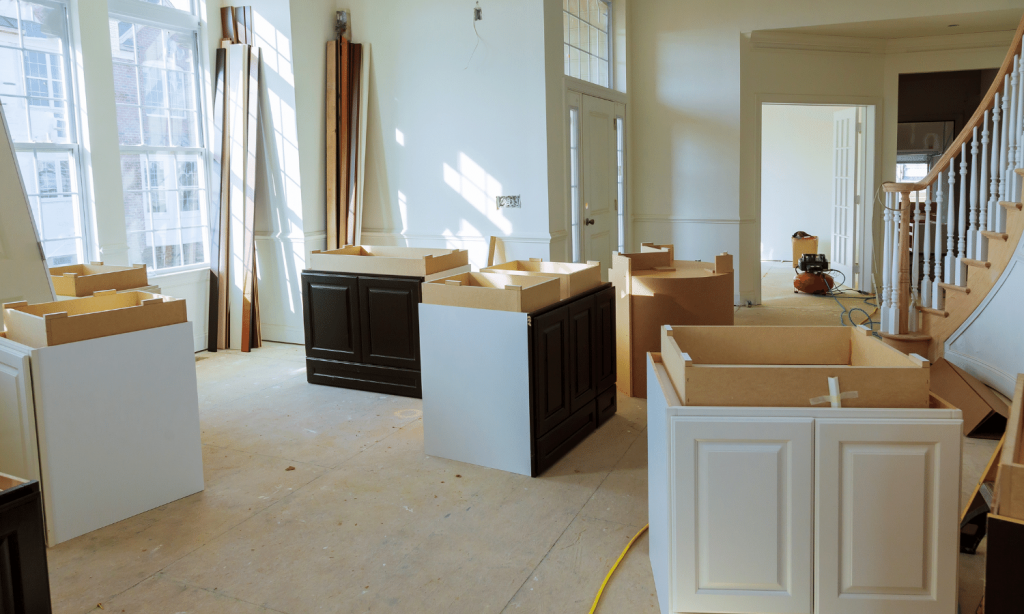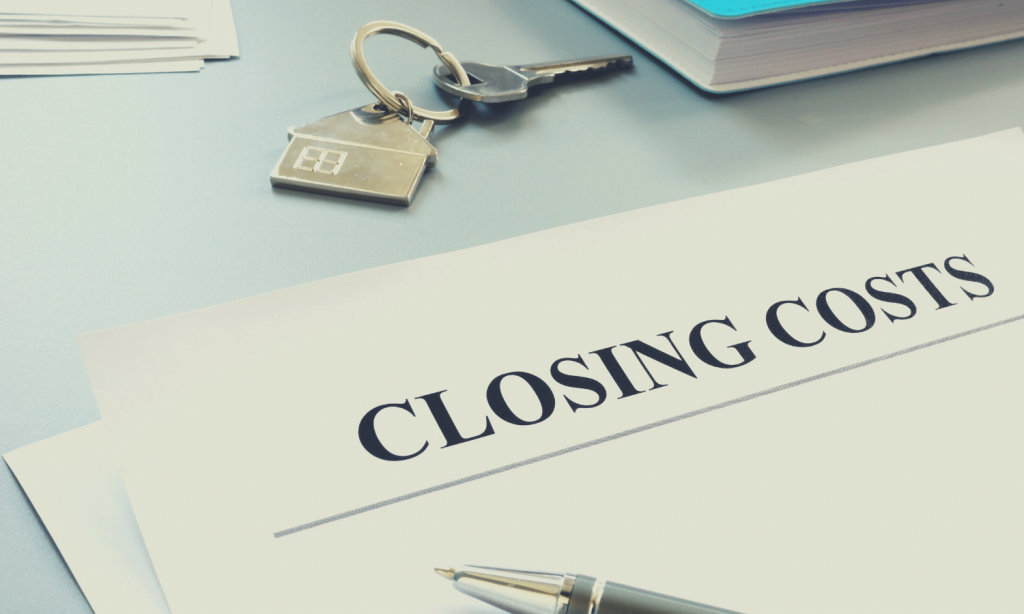It is no secret that it is very expensive to buy a home these days. It’s not cheap to sell a home. Therefore, it doesn’t matter how much a home sells for, it is unlikely that the seller will leave the table with the exact amount. This article will give you a breakdown of the costs involved in selling your home, and offer some tips to keep them from spiraling out of control.
Remodeling Your Home
A home’s “curb appeal” is often referred to by real estate agents. This refers to how it looks to potential buyers. You must take a thorough look at your property from the outside. Are the paints in good condition? Are the bushes well trimmed? Is the garden weeded and trimmed? You should invest time and money to fix any areas that fail to pass.
Once you have made your home attractive enough to potential buyers, it is time to update the interior. Are the wallpaper and paint still in good condition? Are there obvious repairs needed?
Sellers are increasingly staging their homes to improve their marketability. This could mean anything from decluttering to renting or buying new furniture. A professional stager can be hired or a realty agent can give tips.
A 2021 National Association of Realtors report estimates that professional services could cost $1,500. This is a significant amount, and in many cases will be more than the cost of the service itself. According to the NAR survey, 23% of agents who staged sales reported an increase in their selling prices of 1% to 5%. 29% reported an increase of anywhere from 6% up to 20%.
According to NAR, living rooms (90%), kitchens (80%), master bedrooms (78%), and dining rooms (69%) are the most staged rooms.
While small, inexpensive improvements can make a big difference in a remodeling project’s success, they are not as effective. Remodeling’s 2021 Cost and Value Report found that not one of 22 remodeling projects would be able to recoup their full costs at the time of sale. A minor kitchen remodel averaged 72%, while a major project averaged 54%. The only project that was worth the money was to replace a garage door with one made of steel. It cost 94%.

Buyer incentives
A home may receive multiple offers in a strong housing market. Sellers don’t have to offer additional incentives to buyers to make their homes more competitive. However, in a weaker housing market, there may be some incentives that make a difference.
Incentives include paying points towards the buyer’s mortgage (also known as a seller-paid point), covering closing costs, or leaving behind furniture and appliances.
Pay Off Your Mortgage
You will need to pay off any mortgage debts that you have. To make the deal go through, you will need to have a letter or statement from your lender. This will include information about how much you owe your lender and any prepayment penalties.
If your lender has an escrow account, they should apply the amount to your outstanding debts or refund it.
Real Estate Agent Commissions
Selling a house is expensive. Often, the commissions paid by real estate agents are the largest expense. It may surprise some sellers who are first-time buyers that the seller usually pays both their agent’s and the buyer’s commissions.
How much does a real estate agent cost? The standard commission split between seller and buyer agents is 6%. However, commissions can be negotiated and some agents will accept a lower commission.
Discount brokers may charge sellers a flat fee or a lower percentage (often between 1% and 2%) These include both online brokerage sites and local realtors. There are tradeoffs and you might not receive the same level of service or attention if you pay a higher rate. You may also have to pay a standard commission for the buyer’s agent.
Selling your home yourself can save you commissions. You will still need to pay the buyer’s agents and you will have to do a lot of the work your agent would. It works for some sellers.
The bulk of closing costs for sellers is covered by the costs of real estate agents’ commissions. While some people choose to sell their homes without an agent to save money, you will still need to do a lot of work and pay the buyer’s agent.
Hiring a lawyer
Although the law in each state may differ on whether you are required to hire a lawyer to sell your home, it is often a good idea to do so. The lawyer representing the seller at closing can draft and review the sale contract.
The price you pay will vary from one place to another, but it is likely to range from several hundred to several thousands of dollars.
Other Closing costs
The bulk of closing costs that the seller has to pay will be covered by the commissions paid by real estate agents. However, there may also be other expenses. The seller must pay transfer taxes that some states impose on property transfers. The association may also charge a transfer fee if the property is part of a homeowners association.
These rules can also vary from one state to the next. In many cases, the buyer and seller can negotiate who will pay a specific closing cost as part of the contract.
Income taxes
Federal income taxes may apply if you make enough money from the sale of your home. If you meet the following two requirements, you can exclude a portion from your profits: The home must have been yours for at least 2 years and it must have been your residence for at least 2 years of the last 5.
If you are eligible, you can exempt up to $250,000 as an individual and $500,000 as a married couple filing joint tax returns. Keep in mind that your profit is not based on the amount you paid initially for the home but rather on your adjusted cost basis. This is the sum of the amount you paid for your home and any improvements that you have made over the years.
For example, if your home has a new roof or central air conditioning system, these expenses will increase the basis and decrease your profit. It is possible to add some of the closing costs you incurred when the house was purchased to the basis.
You should also consider the time you lived in your home and how much capital gains tax it will result in. Your profit, if any, will be treated as a long-term capital loss if you own the home for less than a year. It will be subject to the potentially much higher tax rate for short-term capital gain if you own it for less than one year.

What Closing Costs Must a Homebuyer Pay?
The fees that homebuyers must pay are numerous. Make sure you bring enough checks to your closing. The typical closing costs include a mortgage origination charge, title search fee and title insurance premium. These fees can be negotiable, and sellers may offer to contribute as part of your agreement. The average closing fee for a buyer is between 3% and 6% of the sale price.
Is Closing Costs Exempt from Tax?
Tax deductible closing costs are rare. Mortgage interest (including points), and real estate taxes are exceptions. This is only if either the seller or buyer itemizes deductions in their tax returns for the year. Sellers can add some of the original closing costs to their adjusted cost basis for their homes to reduce their tax liability.
What is a no-closing-cost mortgage?
No-closing-cost mortgages are those in which the lender adds the borrower’s closing cost to the loan amount, or charges a higher interest rate. This means that even though you don’t need to pay closing costs at first, they will be added to your loan amount over time.
The Bottom Line: Know the Costs Before Putting Your Home on the Market
You can easily feel overwhelmed by the costs involved in selling your house. These costs can actually increase the resale price of your home and help you sell it faster. Not only will it save you stress, but also make your home more attractive to potential buyers.
The bottom line is that most of the costs of selling your home are, like home ownership itself, often a wise investment. If you are unsure of the costs involved in putting your home up for sale, you may benefit from asking a professional real estate agent to help with the process.
